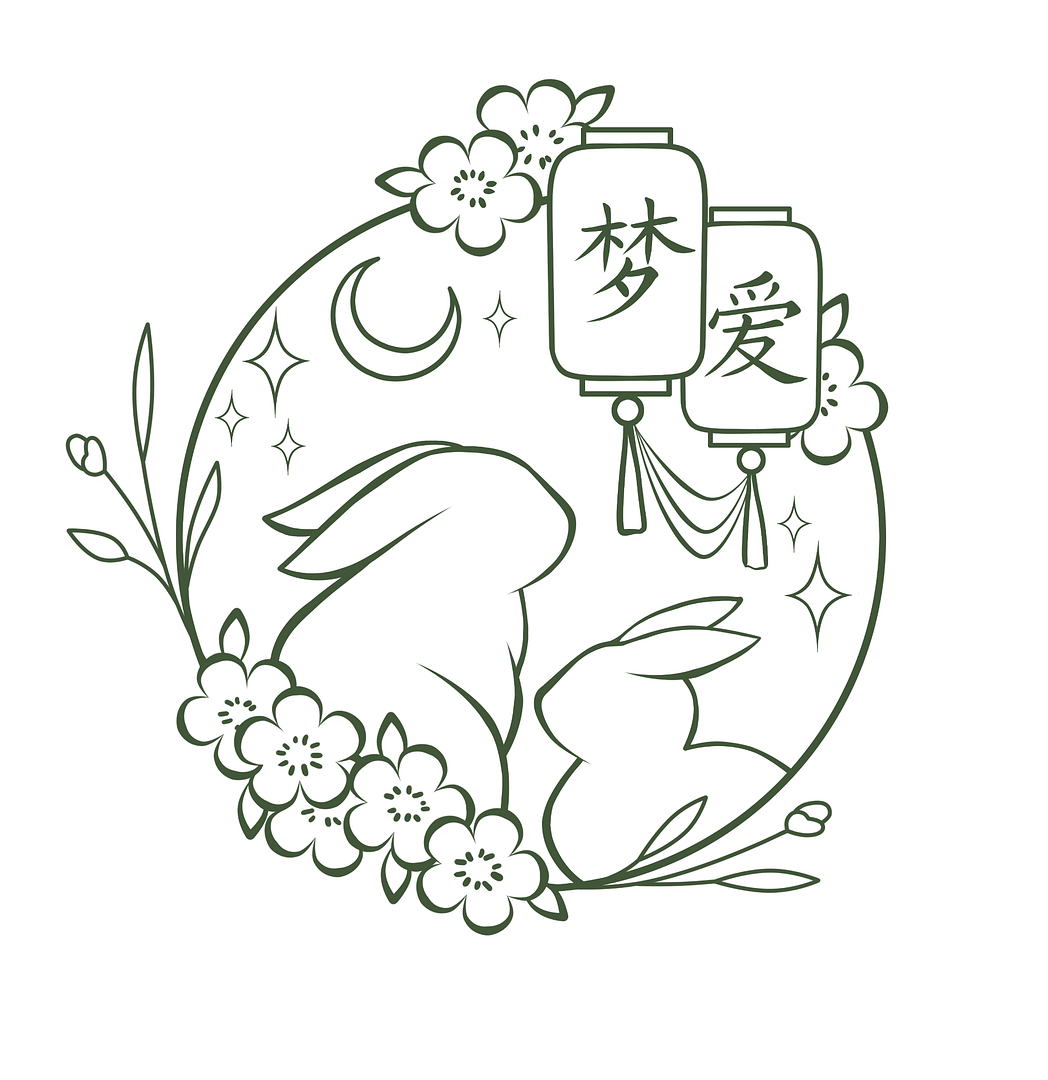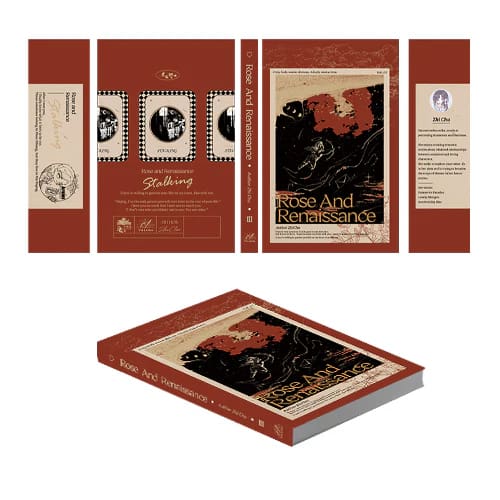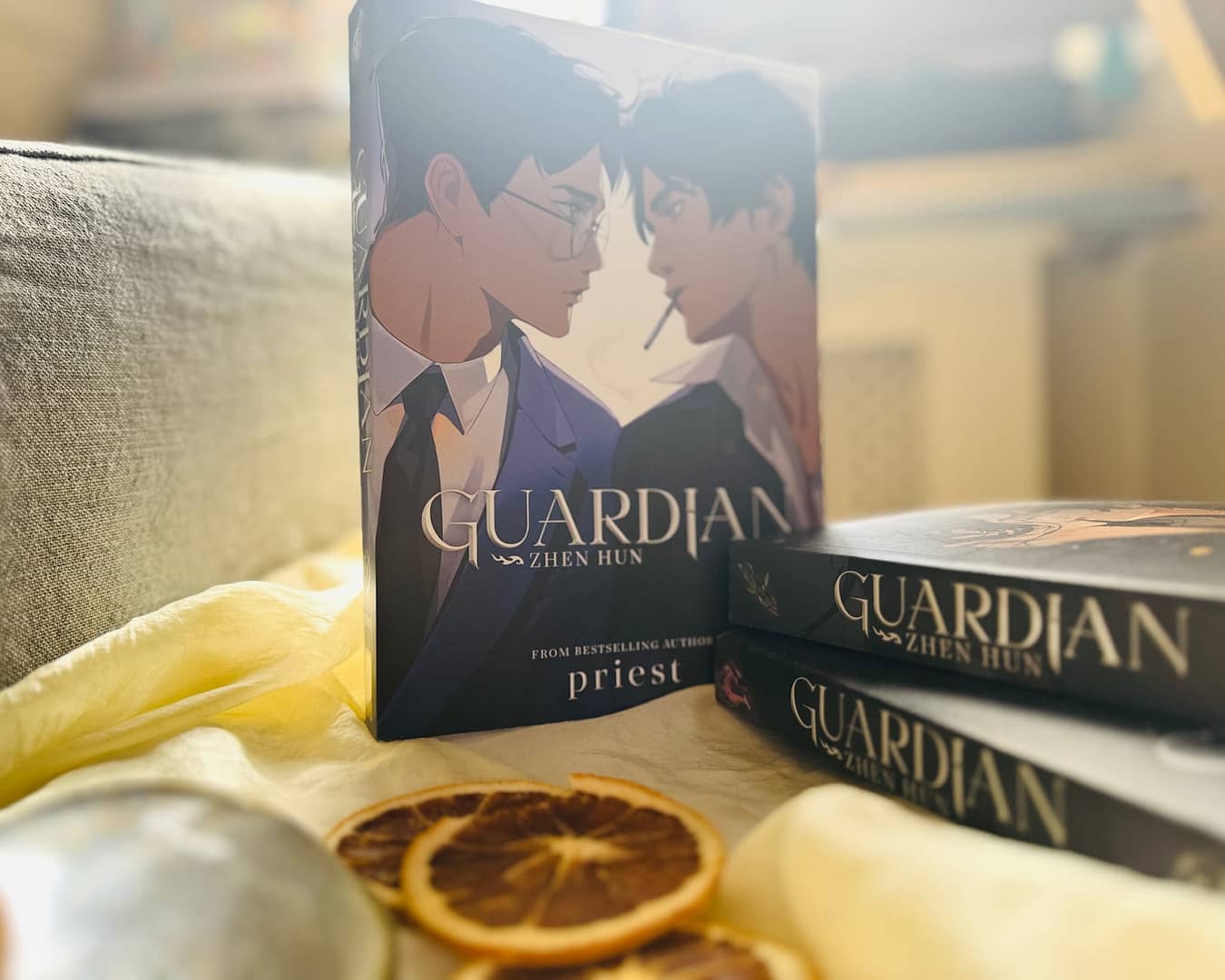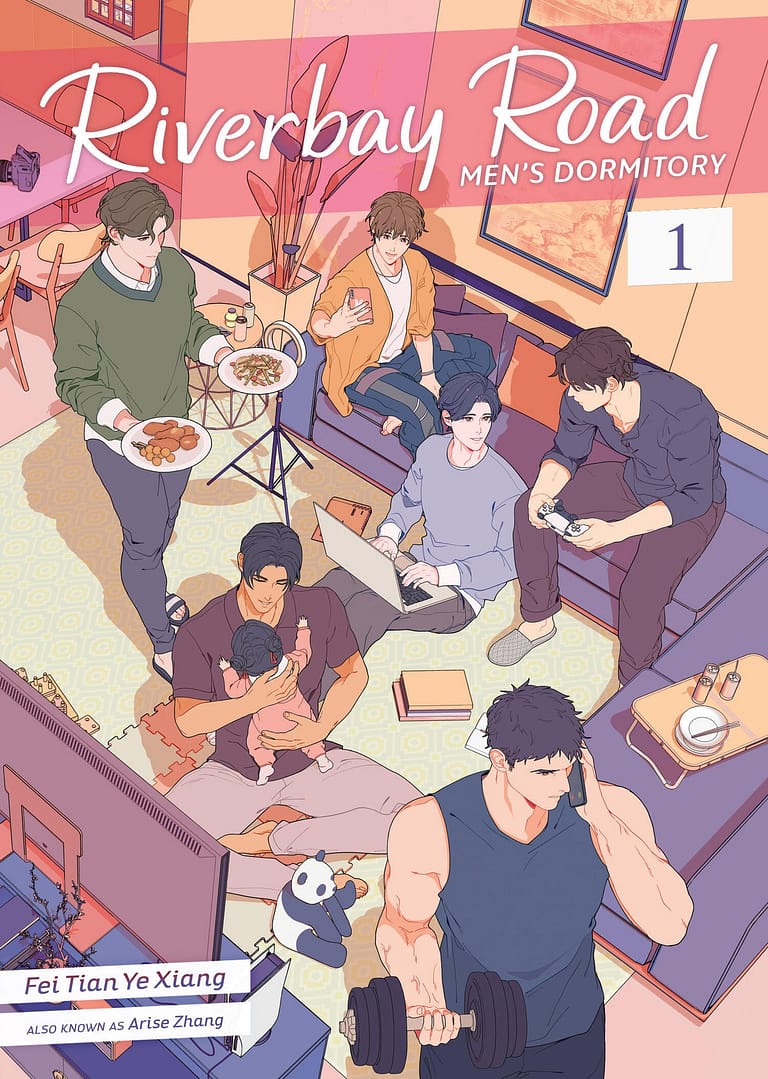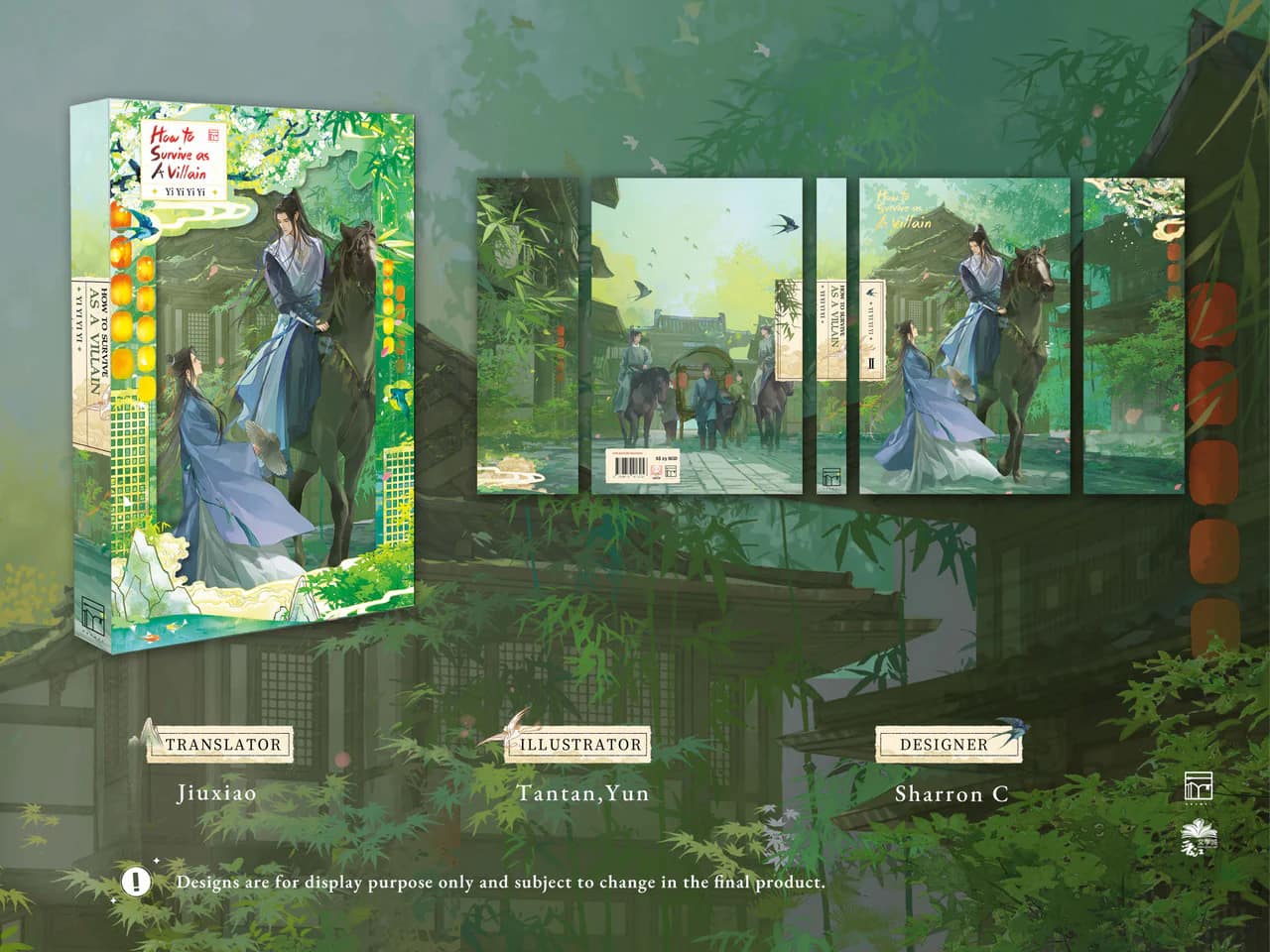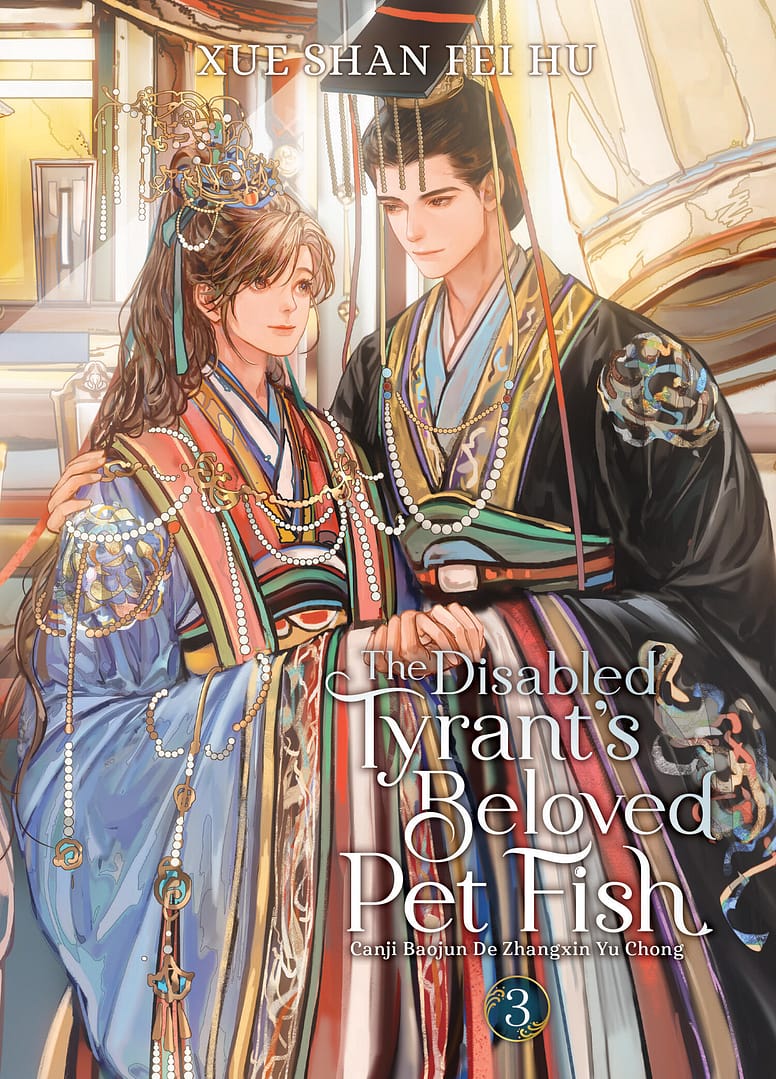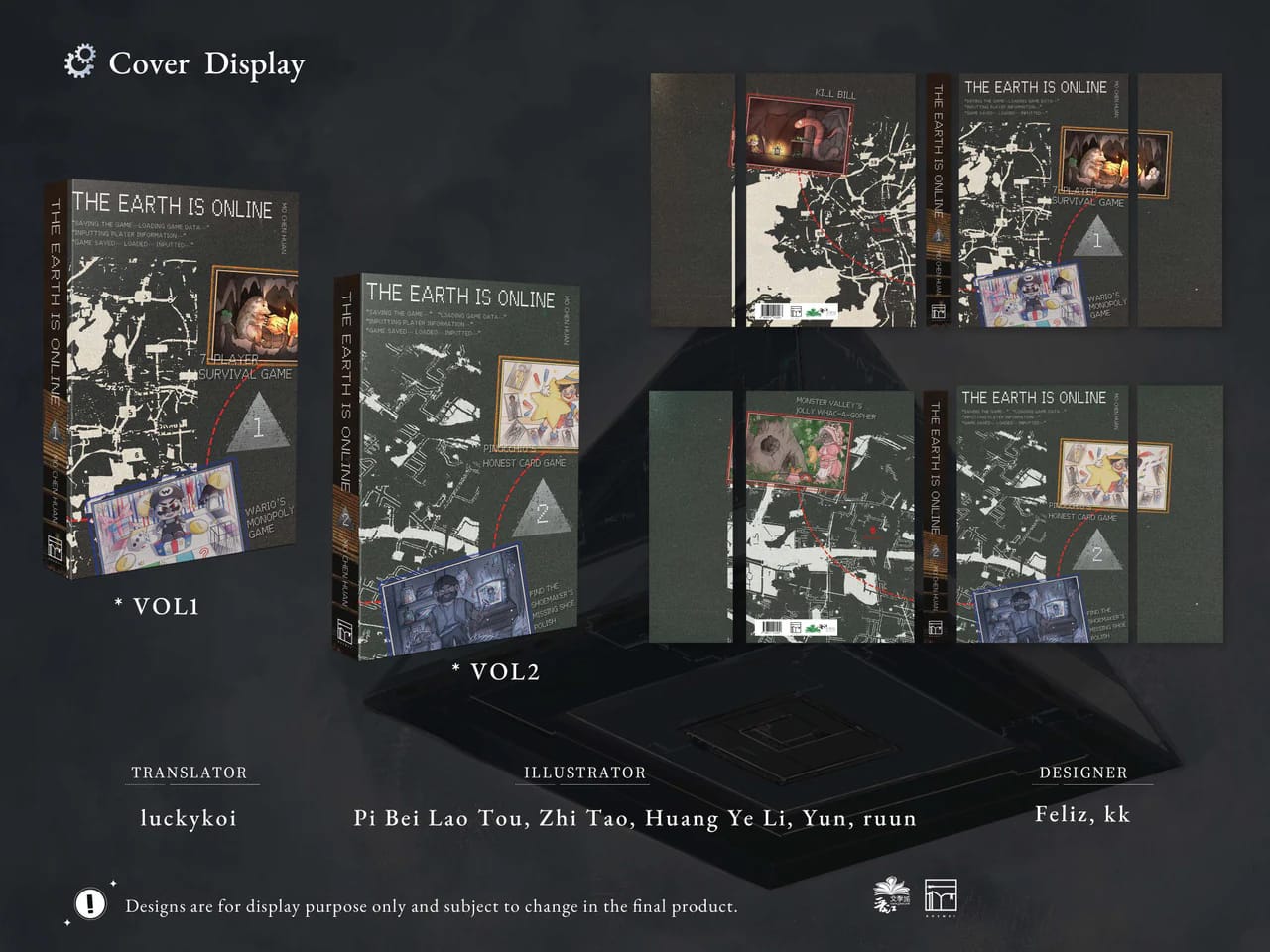Rose and Renaissance v.2 Danmei Novel Review
This is a review for Rose and Renaissance vol. 2 (我只喜欢你的人设[娱乐圈]) by Zhìchǔ (稚楚). This volume is available fully licensed in English from Via Lactea, and can be purchased either directly from Via Lactea (shipping costs outside of Canada can be prohibitive though) or from a third-party retailer.
Please note that all reviews aim to be spoiler-free, while analyses often contain spoilers.
The summary of the book is:
Xia Xiqing is an artist whose angelic looks mask the heartless playboy underneath. When he unexpectedly makes the acquaintance of popular idol actor Zhou Ziheng, the two are thrust into the spotlight and are forced to manage their tangled relationship in front of an audience.

Review Summary
This second volume builds on the groundwork laid in the first, sharpening the emotional conflict while expanding the narrative’s reach. The shift is immediate: the tension no longer lingers in suggestion—it cuts deeper, with stronger consequences. Where Volume 1 was a setup, this one is payoff. The characters’ choices now reverberate beyond their personal bubbles, affecting their work, reputations, and mental states. The tone remains introspective, but the storytelling grows more confident, carrying moments of intensity that feel both earned and unsettling. The emotional pacing is tighter, the stakes feel more personal, and the writing never loses its grip on the internal drama at its core.
Romance and Main Characters
The emotional tension between Zhou Ziheng and Xia Xiqing deepens in a way that reshapes how their dynamic is understood. Xia Xiqing’s guarded, sometimes reckless behavior gains clarity as the story delves into his past—highlighting the fear, guilt, and coping mechanisms that shaped him. Meanwhile, Zhou Ziheng grows beyond the polished image he projected in Volume 1. Beneath the composed exterior is someone grappling with his own contradictions, questioning what’s real and what’s just habit. The balance of control begins to shift, and what started as surface-level attraction slowly becomes something more intimate and complex. Vulnerability is no longer one-sided, and the connection begins to feel like a choice rather than a collision.
Secondary Characters
Secondary characters are given more attention and dimension in this volume. Their roles are no longer just supportive or reactive—they now carry individual agendas, emotions, and moments that affect the leads in meaningful ways. From those working behind the scenes to peers in the acting world, their dialogue and choices add complexity to an already emotionally fraught narrative. Jealousy, ambition, and betrayal creep in, coloring even the most mundane interactions with a sense of calculated risk. These are no longer background characters; they’re players in their own right, and their presence adds layers of tension that enrich the leads’ story rather than distract from it.
Plot
This volume shifts from quiet buildup to deeper psychological entanglement. While the story still avoids traditional plot twists, it dives further into the emotional consequences of the characters’ choices—both in their professional and personal lives. Much of the plot revolves around boundary testing: how far each character is willing to go to protect, provoke, or understand the other. The acting show continues to be a structural device, but it now functions more as a mirror than a stage—reflecting the real roles the characters unconsciously play in each other’s lives. The narrative thrives not on big revelations, but on emotional reversals and shifting control, making this a more immersive and introspective volume than the first.
Worldbuilding
The story remains firmly rooted in the same modern, media-saturated world as the first volume, but the lens has narrowed and sharpened. The entertainment industry is no longer just a flashy backdrop—it becomes a mechanism for character introspection. This time, we’re brought into the process of character building, script reading, and the emotional demands of acting. There’s an underlying commentary about identity and how performance off-camera is often more grueling than the one on it. Through subtle details and inner monologues, the novel explores how much of a person is shaped by the roles they are forced—or choose—to play.
Writing Style & Translation:
Like the first volume, the writing balances emotional depth with steady tension. It’s lyrical in quiet moments, drawing out silence, gesture, and atmosphere to create meaning beyond the dialogue. When emotions flare, the tone sharpens—never losing clarity, even when characters themselves are confused or conflicted. The internal narration remains one of the story’s strengths, providing access to the characters’ thoughts without slowing the momentum. The prose leans into subtlety: a look, a pause, or an unfinished sentence often says more than exposition ever could. Transitions between thought, memory, and action feel fluid, and even when the pace slows, the emotional current stays charged.
Spice Level
The intimacy escalates notably in this volume. While there are still moments that fade to black, other scenes are far more explicit—on-page and emotionally charged. These scenes don’t just serve as gratification; they reflect the characters’ evolving dynamics, their shifting power plays, and the vulnerability that intimacy demands. The detail leaves little to the imagination, and while the tone remains intense, the writing avoids gratuity by anchoring each moment in character emotion. It’s intimate, raw, and occasionally difficult, but always purposeful in what it reveals.
How to Read
This volume is available fully licensed in English from Via Lactea, and can be purchased either directly from Via Lactea (shipping costs outside of Canada can be prohibitive though) or from a third-party retailer.
Check out the Review of Other Volumes!
-
Rose and Renaissance v.4 Danmei Novel Review
This is a review for Rose and Renaissance vol. 4 (我只喜欢你的人设[娱乐圈]) by Zhìchǔ (稚楚). This volume is available fully licensed in…
-
Rose and Renaissance v.3 Danmei Novel Review
This is a review for Rose and Renaissance vol. 3 (我只喜欢你的人设[娱乐圈]) by Zhìchǔ (稚楚). This volume is available fully licensed in…
-
Rose and Renaissance v.1 Danmei Novel Review
This is a review for Rose and Renaissance vol. 1 (我只喜欢你的人设[娱乐圈]) by Zhìchǔ (稚楚). This volume is available fully licensed in…
